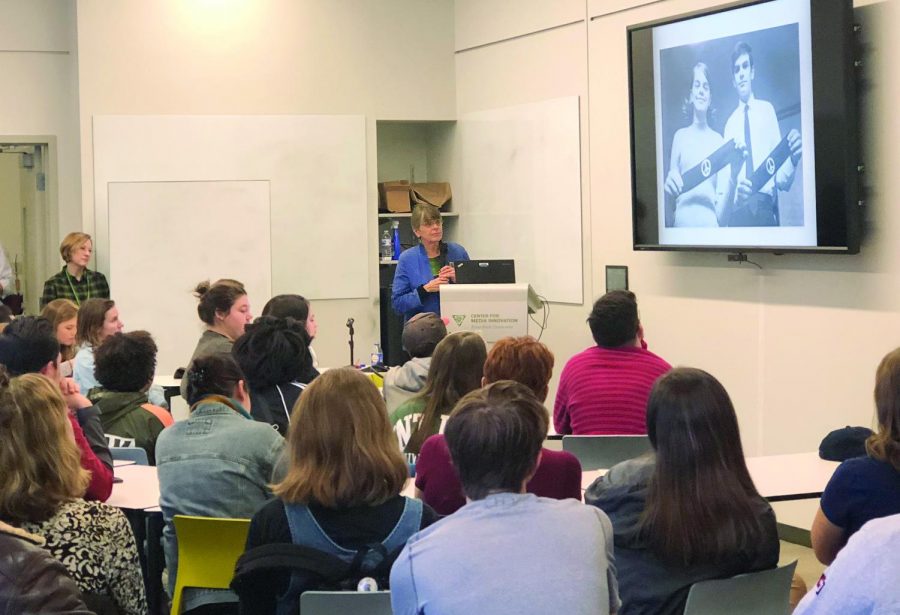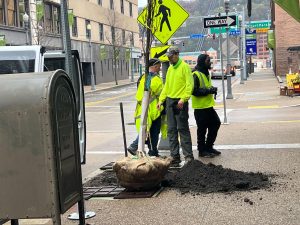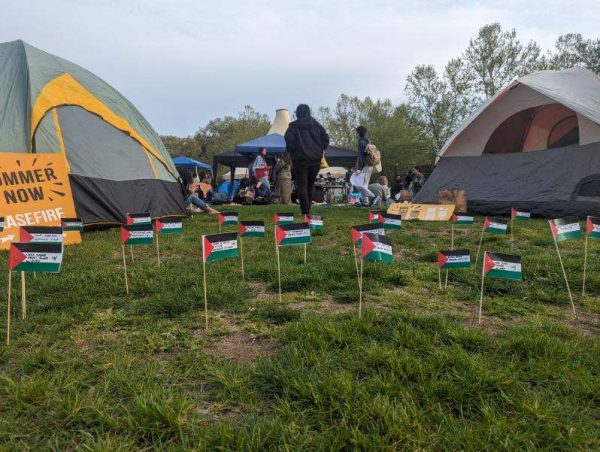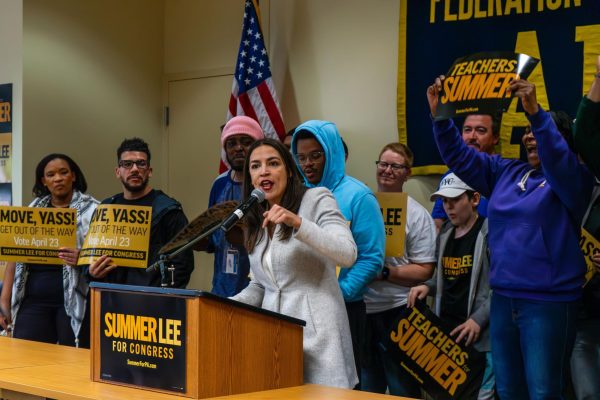Free speech activist visits CMI
Tinker tells students to speak out
Photo by Emily Bennett
Mary Beth Tinker presents a photo of herself with her iconic armband to students at the CMI.
October 30, 2018
Free speech activist Mary Beth Tinker visited the Center for Media Innovation Oct. 23 to share her story with students regarding her role in the historic 1969 Tinker v. Des Moines Independent School District Supreme Court case.
Tinker fought for the freedom to wear a black armband in protest of the Vietnam War at school and won her case in the Supreme Court at the age of 13.
“You don’t have to be the most courageous person in the world,” Tinker said. “You can just be you. You can just have a little bit of courage to speak up about something.”
Over 50 people crowded in the main conference room of the CMI to hear Tinker share her life story in an event co-sponsored by the Society of Professional Journalists (SPJ) and the Honors Program. Her visit was one stop in a nationwide tour to advocate for the rights of youth.
Helen Fallon, director of the Honors Program, said she believes there is a real benefit for students to have the opportunity to interact directly with historical
figures.
“Bringing people like her to campus makes history come to life,” Fallon said. “We can read about what people do, but when we hear directly from them, that is a whole other thing.”
Nick Tommarello, president of SPJ and sophomore broadcast reporting major, said he remembered learning about Tinker in high school history classes.
“I was really excited to actually get to meet her,” Tommarello said. “Just seeing how personable she was, how kind and nice she was and how open she was to meeting everyone… honestly, throughout the whole thing, we were asking her questions, but I noticed that she really wanted to ask us questions and pick our brains.”
Tinker not only spoke about her experience defending her First Amendment right before the highest court in the nation, but also spoke of her upbringing in a Methodist family that contributed to the Civil Rights Movement throughout the 1960s.
“It was the way I was raised, to speak up for what you believe in,” Tinker said. “My father said we have to try to reach out to our enemies also. That’s what our religion tells us to do.”
Passionate about young people’s role in the democratic process, Tinker has spent the last few years traveling to advocate for youth to speak up for what they believe in. She shared stories of students she met across the country who have followed in her footsteps of defending their First Amendment freedoms.
“So many young people in history have taken democracy forward,” she said. “You have a tendency to take action, you see when things are not fair and you’re willing to take risks. Young people see through hypocrisy.”
Tommarello said this was the most engaging part of her presentation.
“What I thought was so interesting was learning about what she’s doing now, traveling to all of these schools and talking to kids,” Tommarello said.
Tinker inspired students and faculty alike, decades after challenging what freedom of speech really means within the school system.
“I’ve always admired her for her courage in stepping up,” Fallon said. “To have that presence of mind as a young person, to understand what she was doing, standing up for her rights, was remarkable.”
Tommarello said that as a journalist, Tinker’s advice was essential.
“What I took from her is to never stop fighting for free speech,” Tommarello said. “When we feel like our free speech is being infringed, we actually need to go and do something about it and that we don’t ever stop. She said persistence
is key.”
Tinker stayed almost an hour following the presentation to discuss issues that mattered to the students on campus. She encouraged the crowd to stay vigilant.
“Sometimes I feel like giving up,” Tinker said. “So many are discouraged. Find a group doing something you care about. It’s a great way of life – trying.”
She saw similarities in her youth to what the youth today is standing up against.
“You’re living in mighty times right now,” Tinker said. “What a time it was and what a time it is
right now.”















